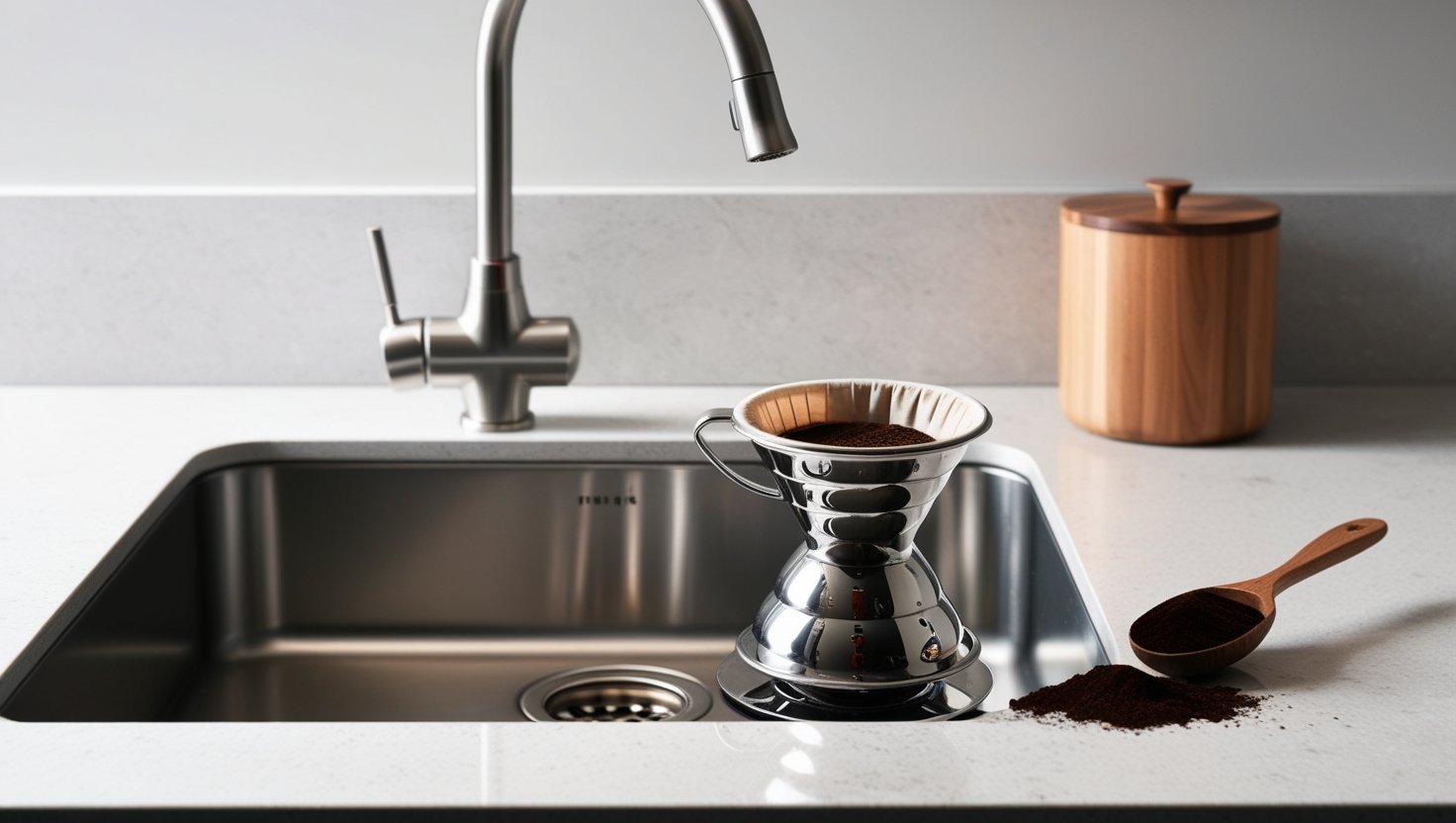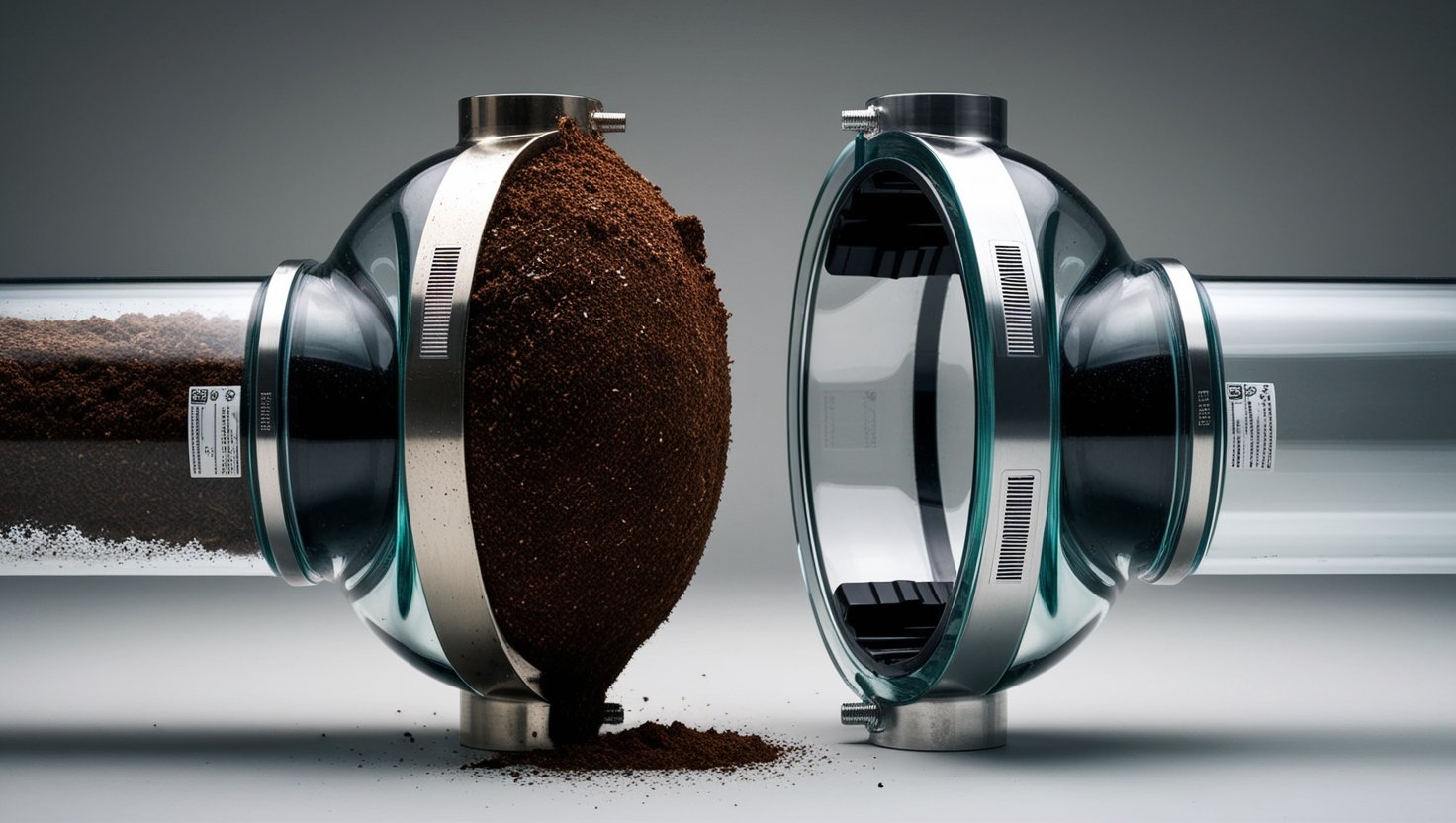Can You Put Coffee Grounds Down the Garbage Disposal?
You finish brewing your morning coffee and instinctively walk toward the sink. Without a second thought, you dump the used coffee grounds down the garbage disposal. It’s quick, easy, and… possibly a plumbing disaster waiting to happen.
Many coffee lovers deal with leftover grounds daily. And while the garbage disposal seems like a convenient solution, the real question is: Should you be using it to get rid of coffee grounds?
In this guide, we’ll break down what really happens when coffee grounds go down the drain, why plumbers recommend against it, and safer ways to dispose of or reuse them. Whether you’re a home barista or a campground brewer, this article will help you keep both your kitchen and pipes running smoothly.
Why Do People Put Coffee Grounds in the Disposal?
Coffee drinkers tend to see used grounds as harmless—after all, they’re small, organic particles. So it’s easy to assume they’ll just wash away like water or food crumbs. Some even claim that putting coffee grounds in the garbage disposal freshens the smell.
Unfortunately, this habit is based more on convenience and myth than good practice.
What Happens When You Put Coffee Grounds in the Disposal?
Unlike loose crumbs or liquids, coffee grounds don’t break down or dissolve. Instead, they clump together and form a dense sludge. This sludge behaves like wet cement over time—coating pipes, sticking to the sides of your garbage disposal, and accumulating until water flow slows or stops.
In small amounts, it may seem like no big deal. But daily disposal leads to buildup, especially in older or narrower plumbing systems.
Coffee Grounds vs. Other Kitchen Waste: A Comparison
| Kitchen Waste Item | Safe for Disposal? | Why or Why Not |
|---|---|---|
| Soft vegetables | ✅ Yes | Breaks down easily, safe for disposal |
| Eggshells | ⚠️ Caution | Can dull blades, create small clogging particles |
| Grease/Fats | ❌ No | Solidifies in pipes, causes blockages |
| Coffee Grounds | ❌ No | Forms sludge, clogs pipes and drains |
| Citrus Peels (small) | ✅ Yes | Helps clean blades and freshen disposal |
| Starchy Foods (rice, pasta) | ❌ No | Swells with water, leads to drain issues |
As you can see, coffee grounds belong in the “Do Not Dispose” column—alongside grease and pasta.
What Plumbers Say About Coffee Grounds in the Drain
Professional plumbers consistently rank coffee grounds among the top causes of kitchen drain clogs. Here’s why:
Non-soluble: Grounds won’t dissolve in water.
Compacts easily: When wet, they stick to other particles and create mass.
Traps grease: If mixed with oils or food scraps, they form thick, stubborn sludge.
In fact, a report from the National Association of Home Builders notes that improper disposal of kitchen waste—especially grease and grounds—is one of the most common causes of expensive kitchen plumbing repairs.
Can Coffee Grounds Damage the Garbage Disposal?
Technically, the grinder blades of your disposal can handle coffee grounds. They’re not hard or sharp like bones or shells. However, the issue isn’t the disposal—it’s the pipes. Grounds won’t hurt the mechanism itself, but they flow straight into your plumbing system, where they can linger, build up, and block the water flow.
Also, wet grounds can cling to the interior of the disposal and encourage bacterial growth or unpleasant odors over time.
Are There Any Situations Where It’s Okay?
If you rinse tiny amounts of coffee grounds occasionally while flushing the system with cold water for a full minute, you might avoid clogs—but it’s a gamble. In newer homes with wide, well-designed pipes, the risk is lower. Still, most plumbers advise against it altogether.
The Better Alternatives: How to Dispose of Coffee Grounds Safely
Here are safer, more eco-friendly ways to dispose of or even reuse your coffee grounds:
1. Compost Them
Coffee grounds are rich in nitrogen, making them a perfect “green” compost ingredient. They balance well with “brown” materials like dried leaves or paper.
Tip: Let them dry out slightly before adding to compost to prevent clumping.
2. Use in the Garden
Coffee grounds improve soil structure, attract earthworms, and can even deter pests. Plants like hydrangeas, azaleas, and blueberries benefit from the slightly acidic soil grounds create.
Caution: Don’t dump large amounts around plants—mix into soil or compost instead.
3. Deodorize Your Trash or Fridge
Place dry grounds in an open container or cloth bag to absorb smells in trash bins, fridges, or even shoes.
4. Natural Cleaning Scrub
Mix grounds with baking soda for a gentle, abrasive cleaner. Use it to scrub pots or clean grease off stove tops.
5. Dispose in the Trash
If all else fails, tossing used coffee grounds in the garbage is still better than sending them down the drain.
Tips to Keep Your Garbage Disposal Healthy
Even if you never put coffee grounds down the drain, maintenance matters. Here’s how to keep your disposal in good shape:
Run cold water before and after use: Helps flush food particles fully.
Use citrus peels occasionally: Cleans blades and neutralizes odors.
Avoid grease, eggshells, and starchy foods: These can gum up the works.
Clean the disposal monthly: Ice cubes and vinegar can help clean and sharpen blades.
What About Coffee Filters?
Used filters may seem disposable, but they can clog drains if rinsed down the sink. Compost them with your grounds or toss in the trash. If using metal or reusable filters, simply dump the grounds into a compost bin or trash and rinse the filter in the sink.
Summary Table: Coffee Grounds Disposal Do’s and Don’ts
| Method | Safe? | Why |
|---|---|---|
| Down garbage disposal | ❌ No | Causes clogs, builds up in pipes |
| In trash | ✅ Yes | Quick and easy |
| In compost | ✅ Yes | Eco-friendly and beneficial |
| In the garden (in moderation) | ✅ Yes | Improves soil health |
| In toilet or bathroom drain | ❌ No | Can cause plumbing damage |
Coffea Alchemy and Your Home Brew Setup
At Coffea Alchemy, we empower home brewers and camping coffee lovers with both quality gear and practical knowledge. While we focus on what goes into your cup, we also care about what happens after. Understanding how to responsibly dispose of coffee grounds is part of the bigger picture of sustainable, stress-free brewing.
Recap: What You Should Know
Coffee grounds should not be put down the garbage disposal.
Grounds form a dense sludge that causes drain clogs and plumbing issues.
Garbage disposals don’t break down grounds the way you might think.
Composting, reusing, or trashing grounds are much safer options.
Maintain your garbage disposal regularly with cold water and natural cleaning.
Final Thoughts
While it may seem like a small detail, properly disposing of coffee grounds helps avoid costly plumbing problems and supports a cleaner kitchen environment. So next time you’re tempted to dump them in the sink—think again.
What creative ways do you use your spent coffee grounds?
Related Post
Our newsletter
Subscribe to our weekly newsletter & keep up with our latest recipes and organized workshops. You can unsubscribe at any time.


